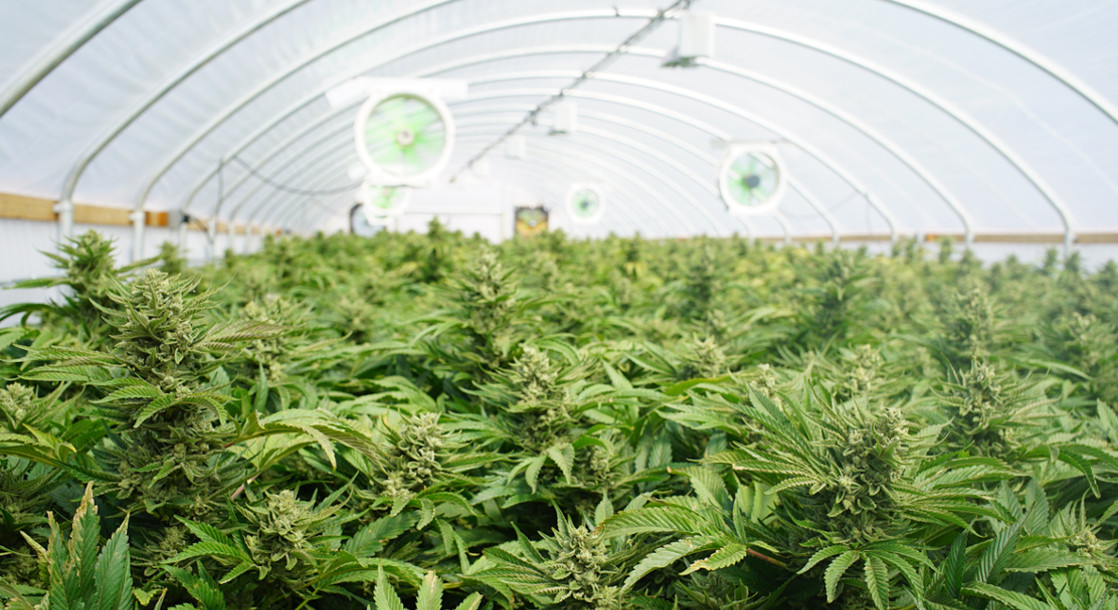Photo via iStock/ SEASTOCK
Oregon's recreational cannabis industry is proving to be too much of a good thing, as a combination of thriving business interests and loose regulations have led to a massive surplus of cannabis. Local cannabis cultivators produced about a million pounds of weed during last year's harvest, much more than state residents can apparently consume. As a result, prices have been falling, forcing smaller canna-businesses to choose between selling their product on the black market, switching to industrial hemp (which can be harvested for CBD), or closing their doors entirely.
Earlier this month, U.S. Attorney Billy Williams announced that the federal government was preparing to intervene in Oregon's cannabis industry in order to cut down on overproduction and interstate smuggling. Faced by the grim prospect of federal interference in their adult-use market, the Oregon Liquor Control Commission (OLCC) — which regulates the state's recreational cannabis industry — has proposed several changes to their policies in order to nip this growing problem in the bud.
First, the commission has announced that they will temporarily stop processing recreational cannabis licenses on June 15th. The OLCC has received nearly 3,500 applications for marijuana processors, producers, retailers, wholesalers, laboratories, and research facilities, creating such a serious backlog that the commission has had to rope in staff from other departments. The agency also receives between 15 and 30 marijuana worker applications every day, increasing the workload.
“We need to focus on what we have and maintain it and get caught up on the backlog,” OLCC spokesman Mark Pettinger said to The Bulletin. “We want people to be aware of it. We’ll continue to accept applications.” Pettinger explained that any applications that come in after June 15th will be set aside to be reviewed sometime in 2019. “We don’t have the authority to say no to applications for licenses,” he added. “We are being straight up with people. We have to tackle the work we have.”
“In order to ensure that the OLCC is fulfilling its regulatory duties and providing timely responses to businesses in the industry, we must focus on the current participants in the system and preserve for the Oregon Legislature its consideration of the necessity for further statutory controls on marijuana licensing in 2019,” OLCC Executive Director Steve Marks said in a statement, reported by The Bulletin.
The OLCC has also proposed that all outdoor grow-ops should be required to notify regulators within 24 to 72 hours before their first harvest, so that inspectors can be on hand to monitor harvests and ensure compliance. The commission hopes that these new rules will close any gaps in the law and help prevent legal weed from being diverted to the illegal market. A public hearing will be held on June 15th to allow industry officials to express their opinions on the proposal. As indoor growers harvest their crops more often, they wouldn’t be subject to the new requirement.
“In the midst of an overproduction crisis and cratering prices in the legal market, diversion and illicit grows are predictable problems,” said Adam Smith, executive director of the Craft Cannabis Alliance, to The Bulletin. Justin Reed, compliance specialist for Oregon cannabis cultivator Shadowbox Farms, added that it’s fairly easy for a cultivator to claim that some of their healthy product is actually damaged or waste, and then divert it to the black market. The OLCC is “not asking for anything that is outlandish,” Reed said. “It’s not trying to suffocate business. There is a lot of cannabis on the market.”











